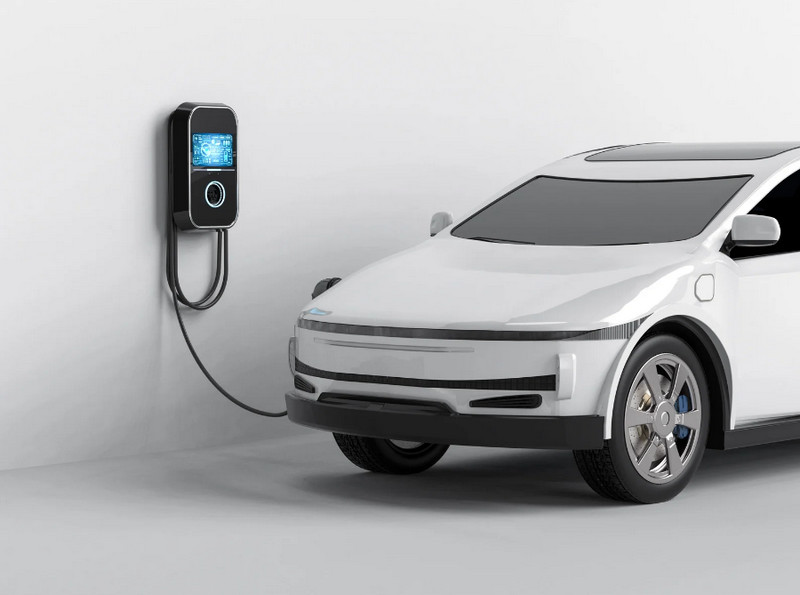Hi there, I’m glad you stopped by. Let’s talk about electric cars and insurance. More drivers in Illinois are switching to electric vehicles (EVs), and we’re getting more questions every day. At Illinois Insurance Center, we’re here to make this easy for you. Whether you’re just starting to shop for an EV or already own one, understanding EV auto insurance in Illinois is important—and we’re going to walk through it together.
Why EV Auto Insurance in Illinois Isn’t Optional
Even though an electric car runs differently than a gas-powered one, the rules about insurance stay the same. In Illinois, you’re legally required to carry liability insurance. That includes coverage for injuries or property damage if you’re at fault in an accident.
At the Illinois Insurance Center, we help our clients understand what those coverage limits mean. That way, you’re not just legal on the road—you’re also protected if something goes wrong.
Why EVs Often Cost More to Insure
Let’s get to one of the questions we hear the most: “Will my electric car cost more to insure?” In many cases, yes—but not always. Here’s why that can happen:
-
EVs usually cost more up front. The average EV is more expensive than a similar gas-powered model. And because insurance covers the cost to replace or fix your car, a higher sticker price often means a higher premium.
-
Repairs can be tricky. Electric vehicles need specialized repairs. Many shops aren’t set up to handle EVs yet, so parts and labor can be more expensive. That higher repair cost can raise your insurance rate.
-
Replacement parts aren’t always easy to find. When something breaks, it might take longer and cost more to get the part you need. That affects how much an insurance company might have to pay after a claim.
But don’t worry—just because it might cost more doesn’t mean it has to break your budget. At Illinois Insurance Center, we look at every angle to find you the best rate based on your situation.
What Impacts the Cost of EV Auto Insurance in Illinois?
Insurance isn’t one-size-fits-all. Many factors affect your price, including:
-
Your driving history. Clean records help you get better rates.
-
Your age and driving experience. Younger drivers often pay more, but experience counts.
-
Credit score. Insurers often check this when setting prices.
-
The deductible you choose. A higher deductible usually means a lower monthly payment.
-
Where you live. Rates in Chicago can be different from rates in Joliet or Rockford.
That’s why we always recommend a personal conversation. We get to know you, your vehicle, and what you want out of your coverage.
Speaking of locations, if you live nearby and need help with your insurance, we’re proud to offer insurance in Aurora, IL.
Can You Lower Your EV Insurance Costs?
Absolutely, and we help our clients do it every day. Here’s how you might cut down your premium:
-
Consider your deductible. If you’re confident you can afford a higher out-of-pocket cost after a claim, a higher deductible can bring your monthly rate down. Just remember—you’ll need to cover that amount if something happens.
-
Ask about discounts. Safe driver? Good student? Multi-car household? We’ll check for every possible discount that applies to your situation.
-
Bundle your coverage. If you also need homeowners insurance, check out our homeowners page and ask us about bundling. That move alone could save you a chunk of change.
Don’t forget—we also provide insurance in Naperville, IL, and we can help you compare EV policy options.
Does Every Insurance Company Offer EV Policies?
Most do, but that doesn’t mean all EV insurance policies are the same. Some carriers have better rates for electric vehicles. Others might offer special features, like coverage for your EV’s battery or charging equipment.
That’s where Illinois Insurance Center steps in. We work with multiple carriers and do the legwork for you. That way, you don’t have to waste time comparing every quote on your own.
And if you’re running a business that uses EVs for deliveries or services, we also handle commercial auto insurance. Let’s talk about how that works.
Are EVs Still Worth It?
It’s a fair question. Yes, insurance may be higher, but electric cars come with benefits:
-
No gas costs. You’ll save money on fuel.
-
Tax credits. Many EV owners qualify for federal or state credits. You might be eligible for up to $7,500 depending on your car.
-
Lower maintenance. Electric motors typically need less upkeep.
We can’t say whether an EV is right for your life, but we can promise we’ll help you protect your investment with the right policy.
And if you’re near the city and need a face-to-face chat, check out our services for insurance in Chicago, IL
EV Auto Insurance in Illinois: What Makes Us Different
When you’re choosing a provider for EV auto insurance in Illinois, you’re not just picking a company—you’re choosing a team that understands the road you drive on. Here’s what sets Illinois Insurance Center apart:
-
Local knowledge. We know what Illinois drivers deal with—from winter roads to city traffic—and we use that info to help guide your coverage.
-
Easy-to-reach agents. Call us at (708) 524-4900 or visit our contact page to talk directly with a real person who cares.
-
More than auto. We also provide life insurance, contractor insurance, and business insurance. One call connects you to all your coverage needs.
And yes, if you’re shopping for insurance around Will County, we serve Joliet, IL too.
Frequently Asked Questions About EV Auto Insurance in Illinois
1. Do I have to buy separate insurance for my EV?
No. Your electric vehicle can be insured under a standard auto policy, as long as it meets Illinois state requirements.
2. Is EV insurance more expensive than gas car insurance?
Usually, yes. EVs often cost more to fix or replace, which can lead to higher premiums.
3. Are there discounts for insuring an EV?
Sometimes. Some insurers offer eco-friendly vehicle discounts. We’ll help you find out.
4. Can I lower my EV insurance by raising my deductible?
Yes, but keep in mind that you’ll pay more out of pocket if you file a claim.
5. Does EV insurance cover the battery?
It depends on the policy. Some cover battery damage, while others don’t. We’ll help you read the fine print.
6. Do I need full coverage for my EV?
If you’re still paying off your car, your lender probably requires full coverage. Even if it’s paid off, full coverage adds peace of mind.
7. Are charging stations covered by auto insurance?
Usually not. Damage to home charging stations might be covered under your homeowners insurance.
8. How do I get a quote for my EV?
Call us at (708) 524-4900 or use our contact page. We’ll guide you through the whole process.
9. Can I add my EV to an existing auto policy?
Yes, in most cases. Just let us know and we’ll update your policy details.
10. Do you offer EV insurance in Rockford, IL?
Yes, we provide insurance in Rockford, IL and many other cities across the state.
Final Thoughts on EV Auto Insurance in Illinois
Buying or switching to an electric vehicle can be exciting—but it does come with some changes, especially when it comes to insurance. At Illinois Insurance Center, we take the time to walk through those changes with you. Whether you’re just exploring options or already own an EV, we’re here to get you the coverage you need at a price that makes sense.
So if you’re looking for EV auto insurance in Illinois, don’t wait. Reach out to our team at (708) 524-4900 or fill out our contact form today. Let’s make sure your electric vehicle is covered the right way—no confusion, no hassle.
See Also:
- 3 Types of Businesses That Need Landscaping Insurance
- How Does Insurance Fit Into Your Financial Plan?
- Vital Information for an Accurate Landscaping Business Insurance Quote
- Protect What Matters: Understanding Renters Insurance with Illinois Insurance Center
- Types of Insurance Contractors Should Get





